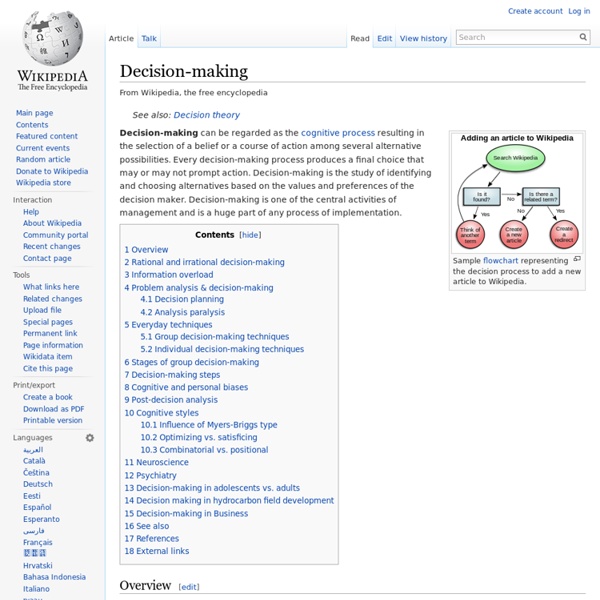Eight Common Problems Teams Encounter
Harvard Business Review’s Answer Exchange lists EIGHT problems that teams encounter: Absence of team identity. Members may not feel mutually accountable to one another for the team’s objectives. There may be a lack of commitment and effort, conflict between team goals and members’ personal goals, or poor collaboration.Difficulty making decisions. Team members may be rigidly adhering to their positions during decision making or making repeated arguments rather than introducing new information.Poor communication.
This Is How To Make Good Decisions
Life would be a lot easier if we just knew how to make good decisions. Research shows we all make a lot of bad ones. With careers: More than half of teachers quit their jobs within four years.
How to Stop Micromanaging and Start Leading - Be Leaderly
Are you a micromanager or a leader? Try this simple test: In any given situation, are you more likely to tell your team what to do, or do you start by asking questions that lead to an exchange of ideas? While a micromanager will focus on execution, control, and telling people what to do, the best leaders ask questions. “This management trick works in almost every situation,” says Cate Huston, who is mobile lead with Automattic.
Decision Making: The #1 Secret Of Astronauts, Samurai, Navy SEALs, and Psychopaths
We all make a lot of bad decisions. With careers: More than half of teachers quit their jobs within four years.
The Resume Summary Statement: When You Need One and How to Do It
It’s been well established that the good ol’ resume objective statement has gone out of fashion in the world of resumes. But what’s all this about its replacement—the summary statement? Depending on who you ask and how you’re using it, summary statements can either be a complete waste of space or a total game changer. For those of you who don’t know, a summary statement (also known as “Summary of Qualifications” or just “Competencies”) essentially consists of a few pithy and strong statements at the beginning of your resume that help summarize your skills and experience in order for a prospective employer to quickly get a sense of the value you could offer.
Computer Science Reveals 4 Secrets That Will Make You Happy
Where do you go for most of your answers these days? Google. And it’s no surprise that Google’s a company full of engineers. Engineers solve problems. That’s what they do. And computer software engineers have developed methods — algorithms — to solve some of the most insanely complex problems out there.
Applying Psychology in Everyday Life
Do you think that psychology is just for students, academics and therapists? Then think again. Because psychology is both an applied and a theoretical subject, it can be utilized in a number of ways. While research studies aren't exactly light reading material for the average person, the results of these experiments and studies can have important applications in daily life. The following are some of the top 10 practical uses for psychology in everyday life.
Explore / Exploit
To build skill from scratch, you need to know How to Climb A Ladder. But how do you know which ladder to climb? There are millions of skills you could acquire, and billions of subtle variations.



